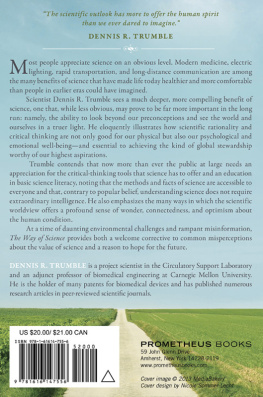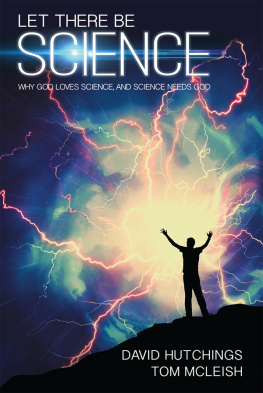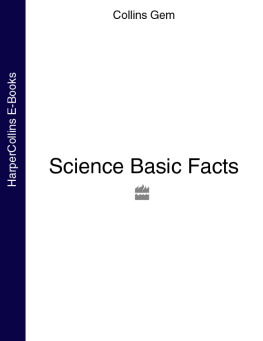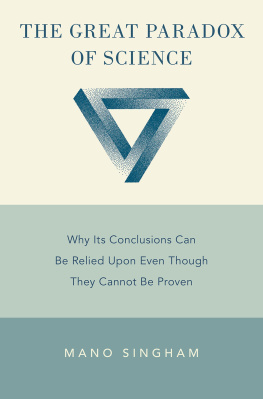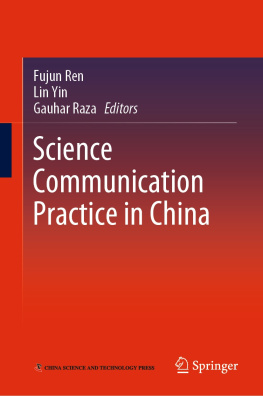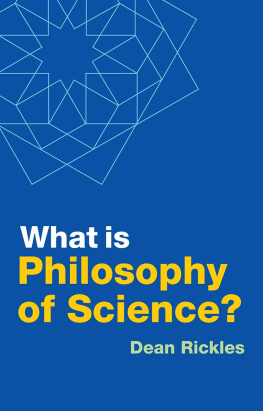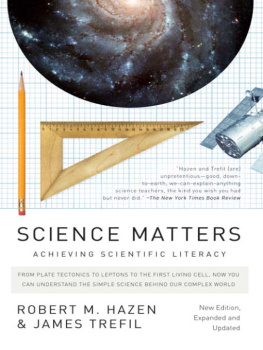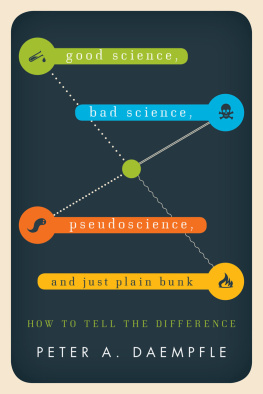
Sit down before fact as a little child, be prepared to give up every preconceived notion, follow humbly wherever or whatever abysses nature leads, or you will learn nothing.
THOMAS H. HUXLEY, LETTER OF REPLY TO
CHARLES KINGSLEY (SEPTEMBER 23, 1860)
When you stop to think about it, the enormous body of knowledge that we humans have come to appreciate in our brief stint on this planet is really quite remarkable. Our species, Homo sapiens, having branched from our hominid lineage a mere two thousand centuries ago, has far outstripped the cognitive capacity of every other earthly life form that has ever existed. We alone have come to understand the immensity of the universe, the workings of the stars and planets, and the forces that drive the seasons and turn night into day. Only humankind has managed to grasp the nature of the elements, the unity of matter and energy, the activities of the cell, and the function of the heart. These and countless other insights have, through the power of observation and reason, all become the exclusive province of the human mind.
Even more impressive is the stunning rapidity with which so many of nature's secrets have yielded to the ceaseless probings of humanity. Cave paintings and archaeological artifacts aside, the whole of recorded human history spans a surprisingly short period of timefewer than five thousand years. And yet the vast majority of human knowledge has accumulated over an era much briefer still; a nascent epoch measured in mere centuries. Indeed, practically everything we've come to know about the natural world can be traced to the Renaissance and the formal adoption of what is now known as the scientific method. This objective approach to scientific inquiry, freed from the age-old compulsion to reconcile observation with preconceived worldviews, led quickly to the dissolution of numerous long-established and firmly entrenched beliefs that had effectively stymied scientific progress for nearly two thousand years. Chief among these doctrines were the geocentric astronomical system of Ptolemy and the Aristotelian conception of gravity and motion. Once these tenacious tenets were finally dispatched in the sixteenth century by the likes of Copernicus, Kepler, and Galileo, the flood gates were opened. As suddenly as the dropping of Sir Isaac's apple, the modern era of free scientific inquiry and technological advancement had begun, promising to elevate humankind to heights scarcely imaginedperhaps even to know the mind of God.
As one discovery led inexorably to the next, however, the underlying assumptions that had buttressed our ancestors' views of creation since time immemorial came increasingly into doubt, creating a surge of societal angst that lingers to this day. Being plucked from our celebrated position at the center of the universe was bad enough, but then to suffer the indignity of evolution! The irony was piercing. It seemed the more enlightened we became, the more sanctified by intellect and reason, the further our status as unique, eternal beings was undermined. Could it be that man, in truth, was simply the latest in a long line of ephemeral animal species culled from the primordial seas by the forces of natural selection? Was it really possible that human beings, who had come to dominate the Earth and its creatures so completely, were actually related to these beasts?
To most people of the Victorian era this notion seemed perfectly absurd and, as such, was summarily dismissed as the idle ruminations of the academic fringe. To the scientific community, however, the body of evidence unearthed by the diggings of one Charles Darwin was not so easily ignored. Indeed, the voluminous observations that Darwin amassed in his 1859 opus The Origin of Species had clearly provided the best evidence to date that life in all its complexity had evolved from simpler forms and that the forces of change were still at work. But that was the least of it. What really caused scientists to sit up and take notice was that Darwin had for the first time tied the evolutionary process to a scientifically viable mechanism of biological adaptationsomething he called descent with modification.
DARWIN'S DANGEROUS IDEA
Though the implications of Darwin's thesis were both provocative and far reaching, The Origin of Species might have emerged largely unnoticed beyond the cloistered walls of academia had its author not already published a popular tome on his Journal of Researches some two decades earlier. As it was, word that Darwin was finally ready to publish his big book on species created something of a stir among the English book-buying publicso much so, in fact, that the original printing of 1,250 copies sold out to booksellers in a single day. Despite its popular appeal, howeveror perhaps because of ita massive groundswell of resistance had already begun to take shape by the time the second edition was released just six weeks later. If Darwin had hoped to forestall his detractors with a surfeit of supporting evidence, he could harbor the fantasy no longer. The theory of evolution by means of natural selection, no matter how logical in construct or well supported by physical proof, was not about to go unchallenged.
Predictably, it was the clergy who spearheaded the backlash of opposition. But theirs were not the only voices raised in protest. Joining in the chorus were a goodly number of scientists who, for reasons known only to God, felt obliged to defend the long-standing supposition that all life forms had been created de novo in their present form. But to be fair, even the unchurched had every reason to be skeptical at first. After all, in the 2,500-year-history of Western philosophical thought, the fixity of species had scarcely been questioned, much less seriously challenged. Like begets like, that was the natural order among all living things. People beget people, swine beget swine, and tulips beget tulipsit was that obvious. And besides, unlike the ministerial dictates on celestial mechanics that had long stood in opposition to astronomical observations, there had never been a compelling reason to doubt the teachings of the church in this regard. No one, for example, had ever witnessed a cow begetting anything but another cow, and chicken eggs, when they hatched, never yielded anything apart from a chick. But perhaps more importantly, the idea of a perfect and unchanging natural world had, by Darwin's time, become more than just a provincial belief borne of cultural norms. It had also gained a large measure of scientific legitimacy, thanks to the 1735 publication of Systema Naturae, a seminal treatise on natural order in which Swedish botanist Carl Linnaeus introduced his scheme
The Linnaean system, still the basis for most taxonomic classifications used in biology today, was created under the explicit assumption that each class, order, family, and species of animal and plant in existence had remained unaltered since the world was new. Although the facts now speak strongly against this hypothesis, from a scientific perspective this was a perfectly legitimate place for the young Linnaeus to start, given the dearth of paleontologic (fossil) evidence at his disposal and the complete lack of genetic, embryologic, and biochemical clues available at the time. All in all, it was the kind of mistake that good scientists make all the time, and like all good scientists Linnaeus was not opposed to amending his hypotheses in deference to newfound facts. Indeed, as more information slowly came to light, Carl von Linn (as he would later come to be known) would ultimately abandon his original contention that species were fixed and would conclude instead that someif not mostspecies had arisen
Next page
